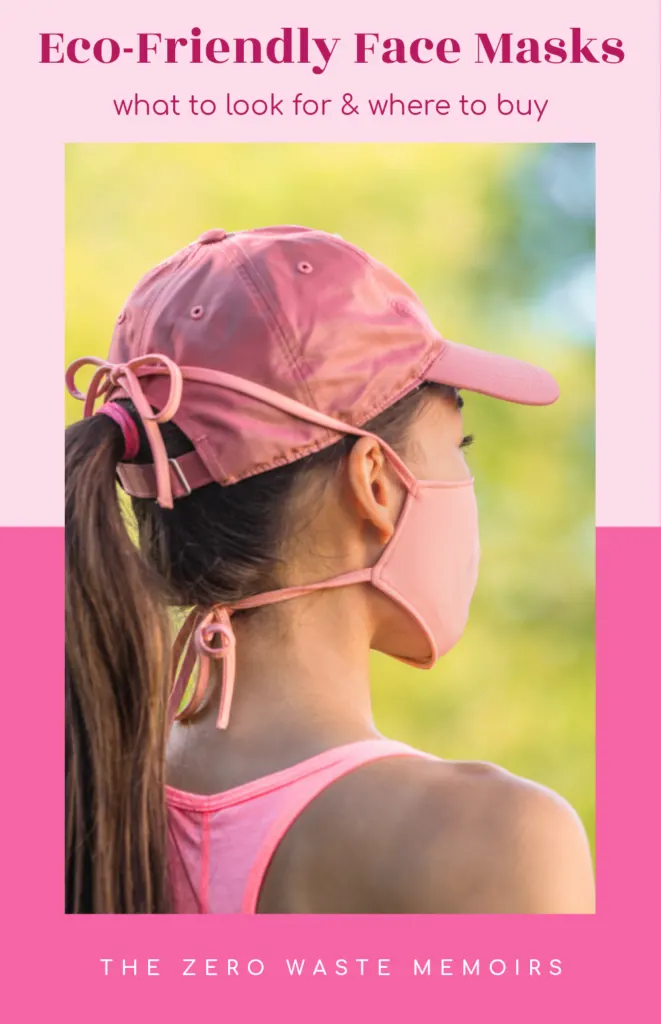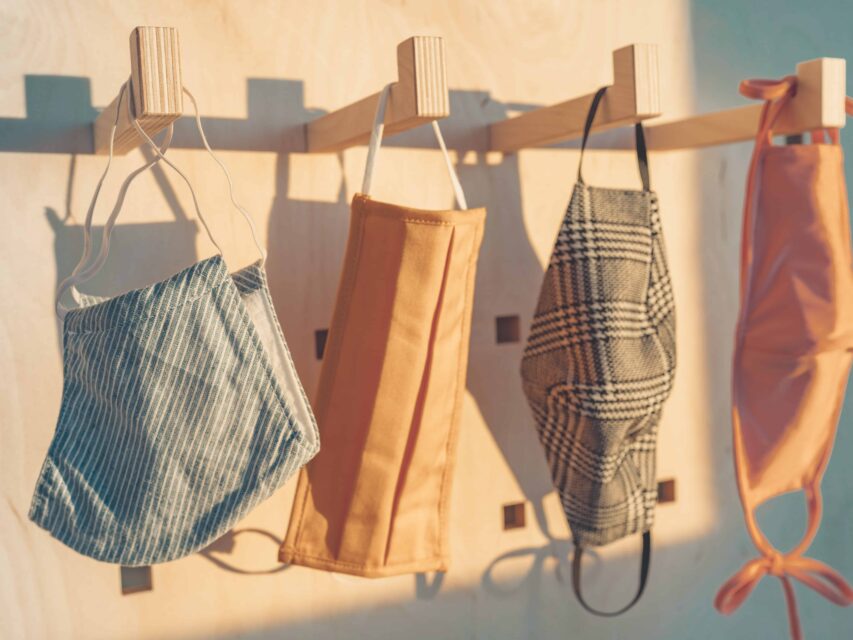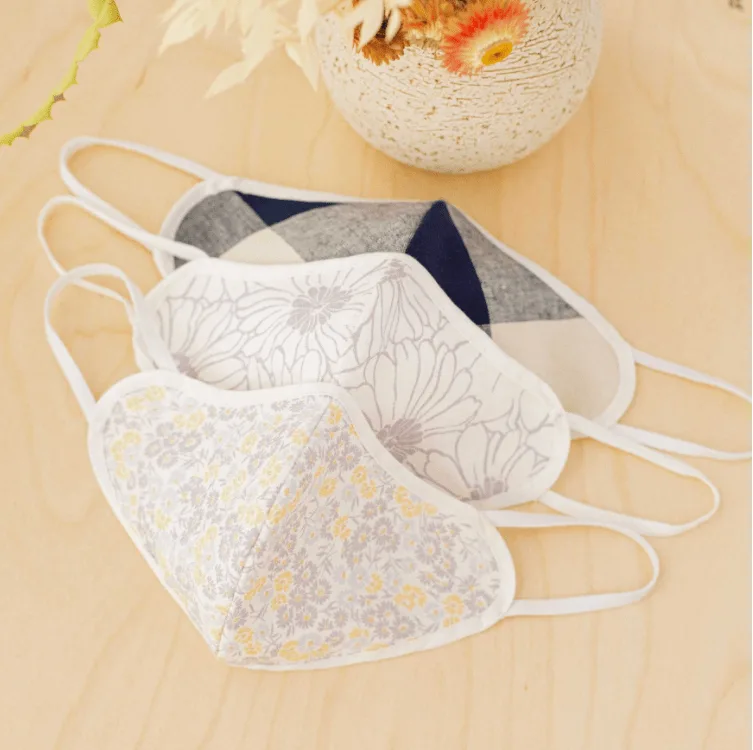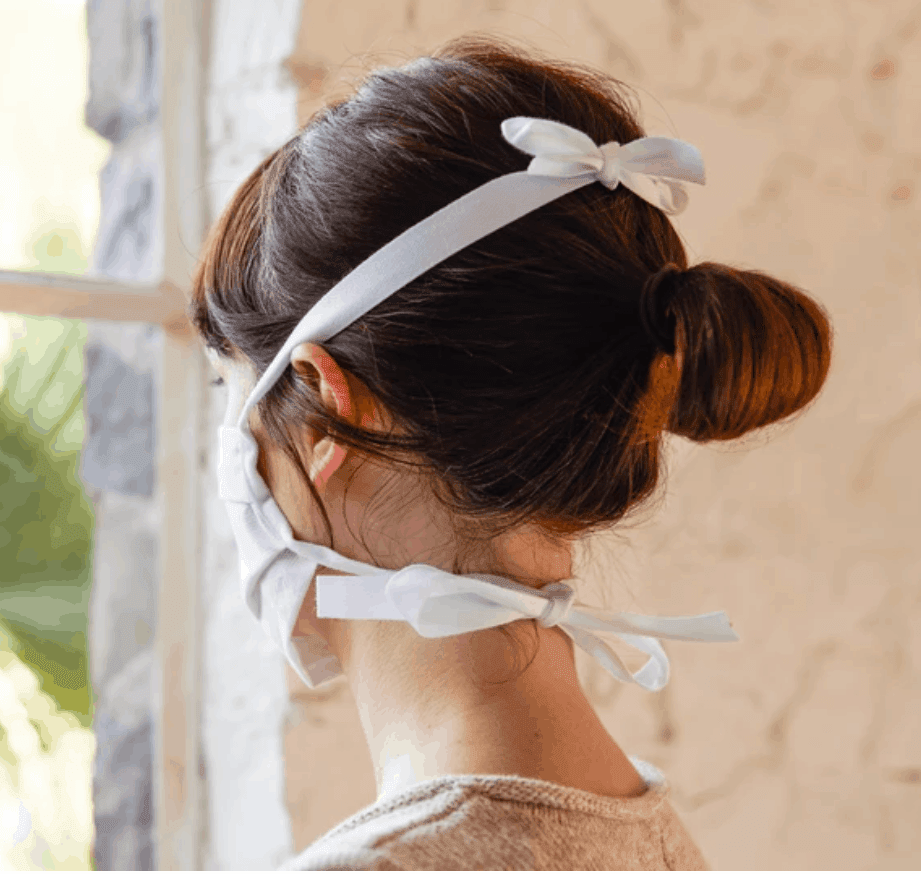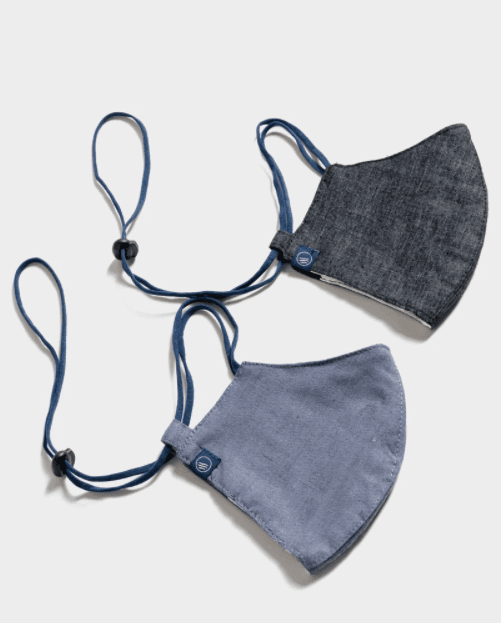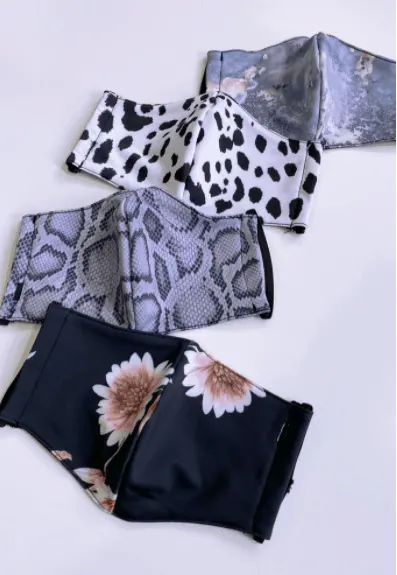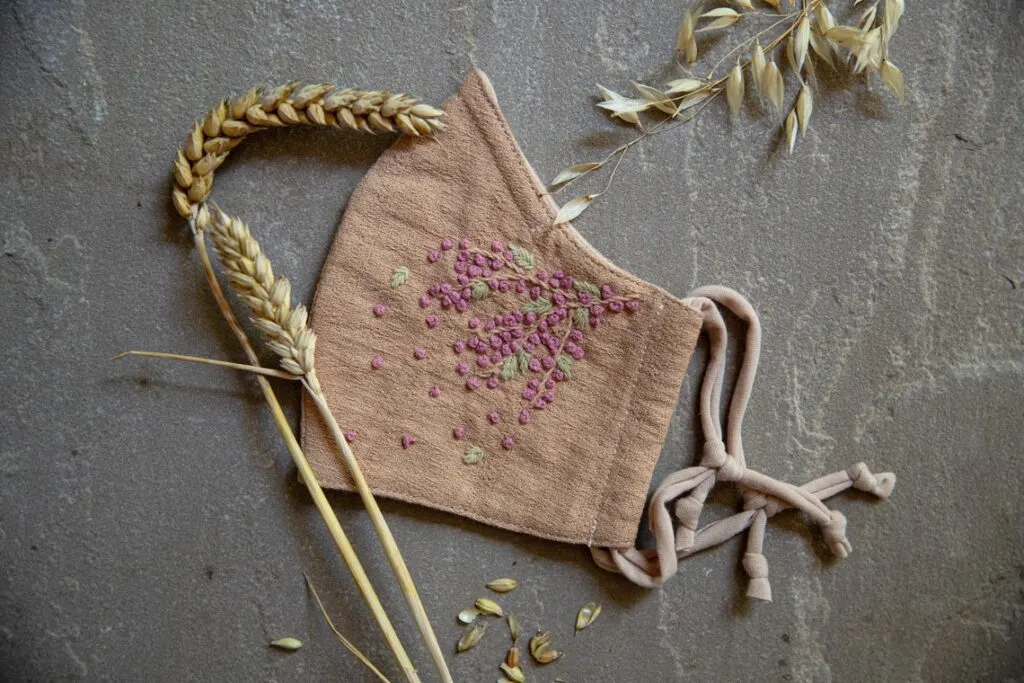Before 2020, face masks were largely a thing of doctors and health professionals. Now, they’re a way of life for people around the world, and it doesn’t look like they’re going away any time soon.
There’s been a lot of misinformation and confusion about face masks from the beginning. Should we be wearing them or not? (Hint: The answer is yes) How do you wear face masks properly? Do we need the N95 ones, or will homemade ones work?
For people conscious about the environment, there are even more questions about finding eco-friendly face masks that will protect us.
Skip straight to our recommended zero waste face masks here.
Or continue reading to find out the why, how, and whats of choosing a sustainable face mask.
This article may contain compensated/affiliate links. See our full disclosure here.
Table of Contents
Why You (Yes, You!) Should Wear a Face Mask
The Centers for Disease Control and Prevention (CDC) clearly states that COVID-19 spreads easily between people, and respiratory droplets from when a person sneezes, coughs, or talks are thought to be main form of this spread.
Face masks are the perfect barrier to prevent the spread of these droplets. There’s a long list of recent clinical and laboratory studies on the CDC website that show that masks reduce the spray of these droplets when worn properly.
Masks give you – the wearer – a measure of protection, but more importantly, they prevent infected people from spreading the virus.
Since not everyone with COVID-19 has symptoms, it’s important for all of us to wear a mask, even if we don’t feel sick.
Disposable vs. Cloth Face Masks
Disposable face masks include surgical masks (the more loose-fitting ones that don’t create a seal) and N95 masks (the close-fitting ones that do create a seal).
Although these disposable masks are necessary for healthcare settings or when small, airborne particles are a concern, they are single-use and create a lot of waste.
And since these masks are needed by healthcare workers, the CDC recommends cloth face masks for the general public at this time.
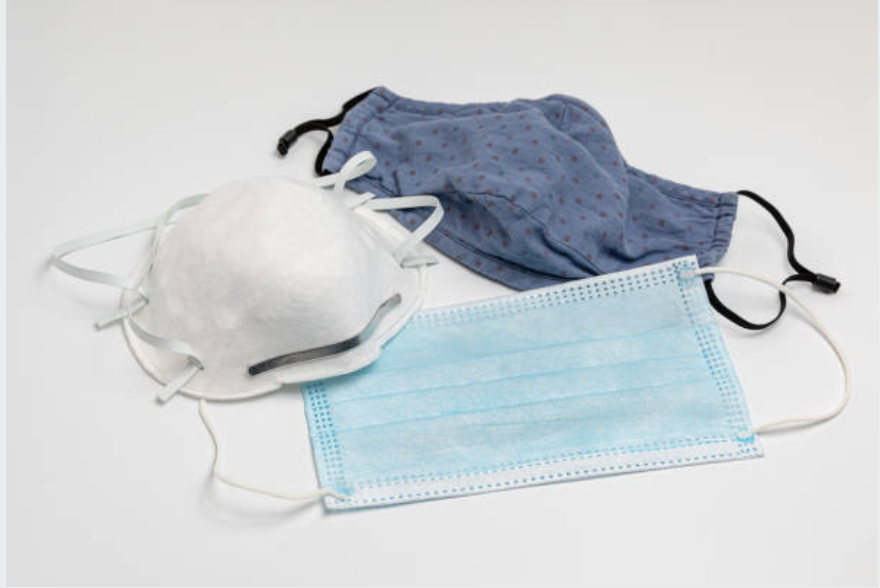
Cloth face masks are reusable face masks made from different types of fabric. These can be manufactured by companies or made at home. While they don’t protect against the smallest airborne particles, if made and worn properly, they do a great job of protecting against the respiratory droplets that spread the virus.
Because they are washable and reusable, these are also the better choice for the environment as well.
Types of Eco-Friendly Face Masks and What to Look For
When choosing a cloth face mask, there are a few things to think about first. The type of material, shape, and how it is worn, all contribute to the overall comfort and effectiveness.
Shape of your zero waste face mask
Looking around, you’ll see a few different types of cloth face masks. When it comes to shape, the best ones are ones that cup tightly around your face and get as close creating a seal as possible. A good one will have some pleats or folds in order to help with the fit.
Search for cloth masks that have a similar shape to N95 masks, as ones that look like surgical masks tend to be flatter, which can create more gaps. You might also consider neck gaiters or buffs, but you’ll probably have to modify them and add layers for better protection.
How many layers do you need?
Speaking of layers, you’ll want a mask with at least two layers. Two layers with a built-in pocket for a filter is even better. In an interview with NPR, epidemiologist Mary Chu recommends two layers of tightly-woven fabric with a filter made of polypropylene fabric in the middle.
This fabric, also called spunbond, can be found branded as Oly-fun in stores such as Wal-mart. However, it isn’t the most environmentally-friendly fabric available. So for a truly eco-friendly face mask, you can also use tissues or coffee filters instead, or simply opt for masks made of three or more layers of tightly woven cotton (see below for more on this).
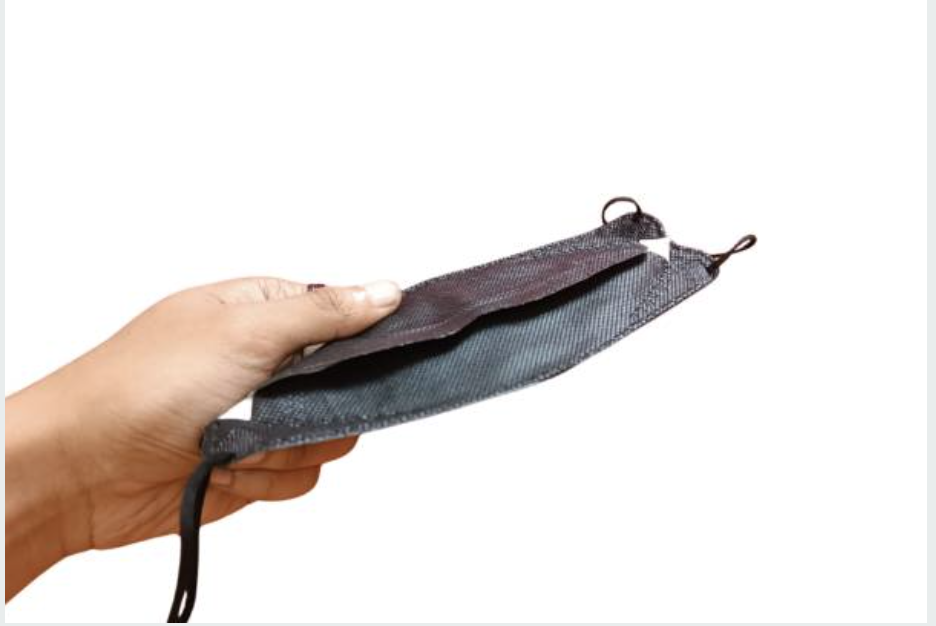
Which material should you look for?
Tightly woven is the key term for material. The bigger the spaces are between threads, the more likely particles are to make their way through.
Tightly woven material will also give you the quality that will last through many washes.
Cotton seems to be the material of choice, and one frequently cited study found 100% cotton fabrics provided the best filtration efficiency.
The best comfort and fit for your reusable face mask
Most masks stay on via ear loops, but if these are uncomfortable, or you anticipate wearing your mask for long periods, you might want to look for one with head straps or buy a head strap accessory. Loops or straps that are adjustable will also give you more comfort and a better fit.
Avoid reusable face masks with valves
Avoid exhalation valves. Since these release unfiltered air, masks with valves put others at risk, defeating the purpose of wearing a mask in the first place.
Sustainability of your face mask
Any masks that are washable and reusable are already sustainable face masks, or at least much more sustainable than the alternative.
But you can go the extra mile by looking out for organic face masks that are made from a material that is Forest Steward-Council (FSC) and Global Organic Textile Standards (GOTS) certified. Or eco-friendly face masks that utilise deadstock fabric in their production.
Our Favorite Reusable Face Masks
Browse our selection of hand-picked zero waste face masks and support the makers who are making a difference!
Christy Dawn Sustainable Face Masks
Parachute Pleated Face Masks
Amour Vert Sustainable Face Masks
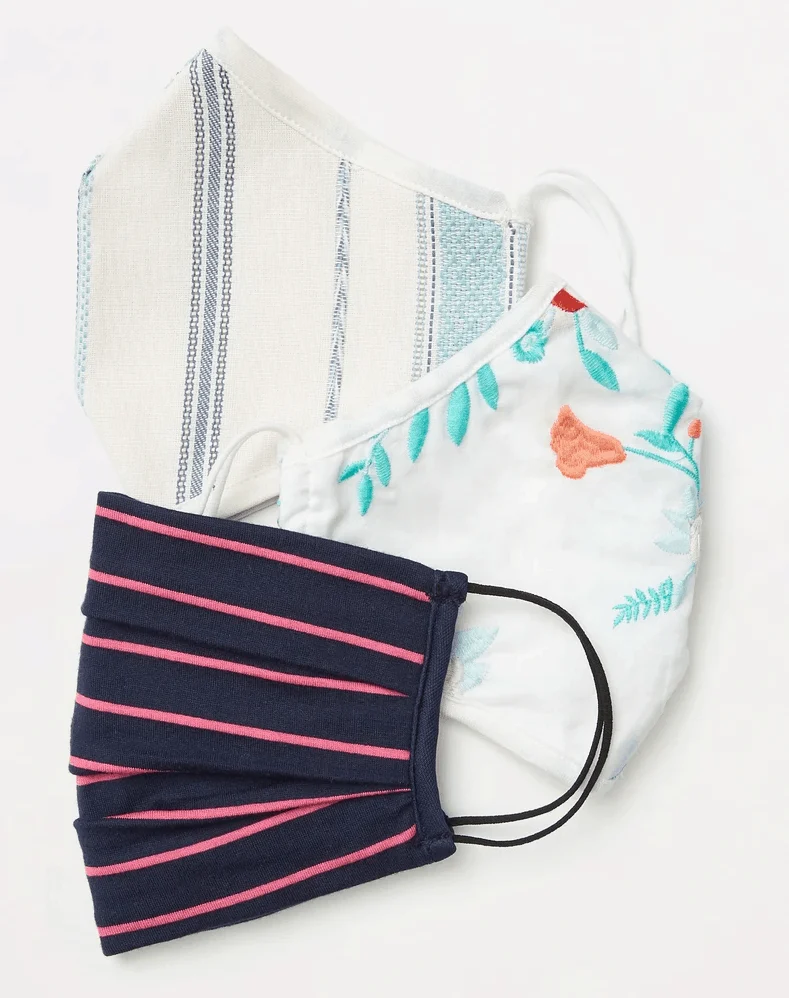
Amour Vert tick every one of the boxes when it comes to producing and selling eco-friendly face masks.
Not only are they produced using deadstock fabrics, but for every mask set purchased, a mask will be donated to the essential workers in the City of San Francisco.
They come in a range of fabrics and styles, including masks with filter pockets.
United by Blue Hemp Face Masks
Made Trade Sustainable Face Masks
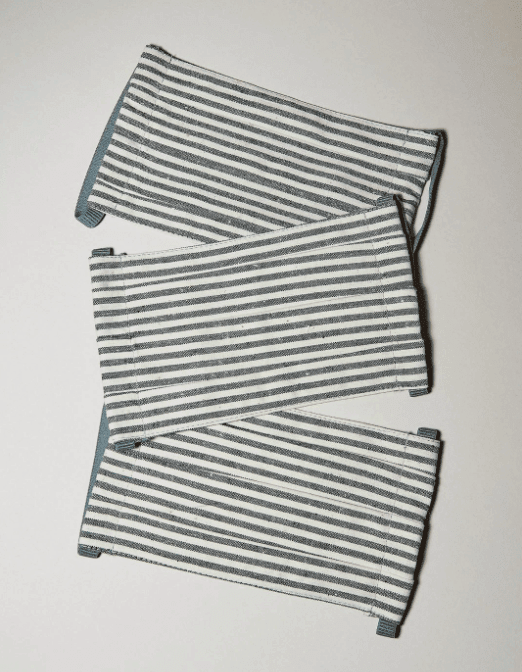
Recycled hemp and organic cotton combine to create these comfortable double layer masks from Made Trade.
Each mask has a filter pocket for extra protection, and the premium elastic ear loops ensure a comfortable fit.
Made Trade employs local sewers who have been affected by the pandemic to create their masks.
Maid With Hemp Eco-Friendly Face Mask
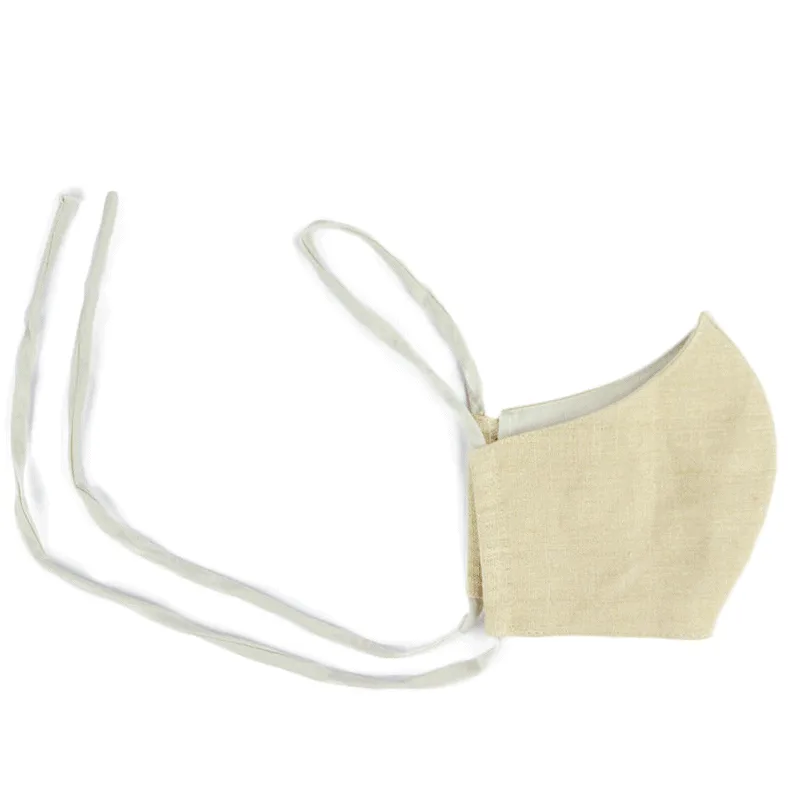
Hemp is one of the most sustainable fabrics out there, so it makes total sense to create eco-friendly face masks from this breathable fabric.
This version by Maid With Hemp combines hemp and organic cotton to create a fitted face mask with a filter pocket.
The tie-around style is perfect for those who find ear loops uncomfortable.
Onzie Zero Waste Face Masks
Organic Cotton Face Masks from Life Without Plastic

Breathable, simple, reusable – these organic face masks by Life Without Plastic make an earth-friendly choice compared to their single-use counterparts.
Their pleated design means it fits most faces perfectly. And because you’re buying from a zero waste store, you can be assured of a plastic-free delivery.
Eco-Friendly Face Masks by Etsy
How to Use & Look After Your Zero Waste Face Masks
To wear a mask correctly, put it over your nose and mouth and pull it just under your chin. Make sure your mask is as snug to your face as possible, and remember that if you lower your mask or pull it partway off, it’s like not wearing a mask at all.
Wash or sanitize your hands before putting on your mask and avoid touching it once it’s on. When you get home, use the strings or loops to remove it, and put it in the wash. Make sure you wash your hands immediately after touching your used mask.
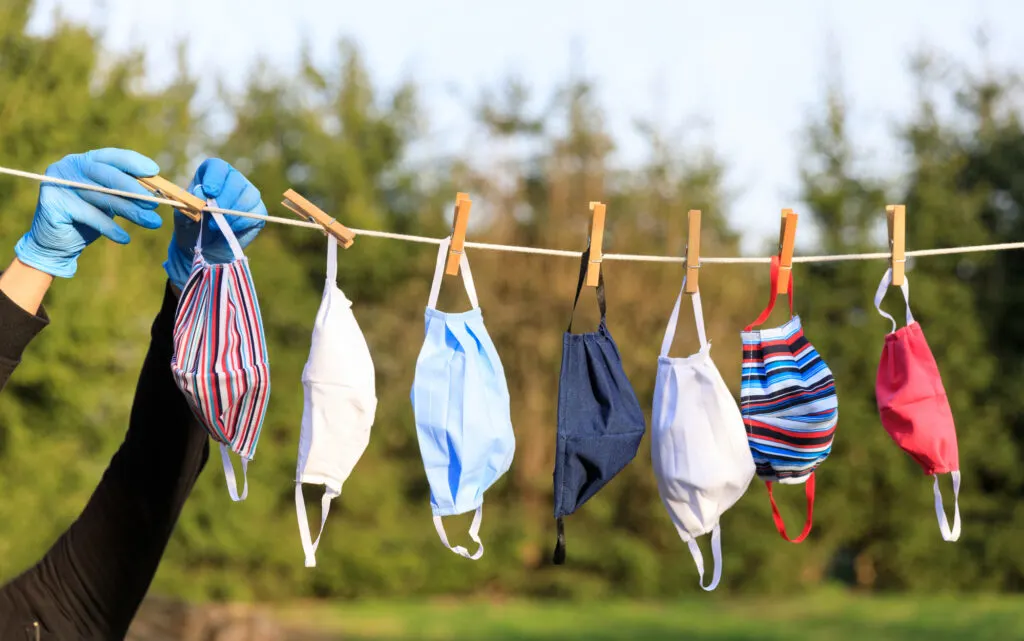
Reusable face masks should be washed after every use, and they can be washed with your normal laundry.
Johns Hopkins Medicine recommends washing them in the laundry machine or by hand using hot water and drying on high heat in the dryer (if you use one).
If you choose to air dry them (the more environmentally-friendly choice), the CDC recommends laying them flat and placing them in direct sunlight if possible.
What if I need to dispose of a single-use face mask?
As more people around the world use disposable face masks, they’re creating an environmental crisis of their own – causing harm to nature and to wildlife. So use reusable masks whenever you can, but if you need to dispose of a single-use face mask at some point, it’s important to know how to dispose of it properly.
When disposing of a single-use mask, be sure to cut the loops or straps first, as animals can become tangled in them. Once you’ve done that, your only choice is to put the mask in the trash, as they can’t be recycled. If possible, put them inside another sealed bag in the trash, to avoid contamination.
When it comes to comfort, cost, ease, and impact, zero waste face masks come out on top. Even authorities are behind the more eco-friendly choice, recommending cloth masks in order to save disposable masks for healthcare professionals.
To be as sustainable as possible, source locally and organically, and for the best protection, think layers and a good fit. Most importantly, even if it’s not mandatory, mask up. In these turbulent times, it’s one of the easiest things you can do to protect yourself and for others.
Pin this for later!
